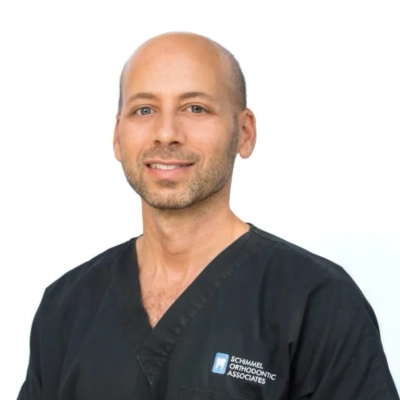4 Things Everyone Should Understand About Dental Care
Dental care is more than just keeping your smile bright—it's a crucial aspect of overall health that many people overlook. This comprehensive guide, backed by expert insights, reveals essential facts about dental care that everyone should know. From understanding the warning signs of gum disease to recognizing the connection between oral health and general wellbeing, these key points will help readers take better care of their teeth and potentially save money in the long run.
- Bleeding Gums Signal Gum Disease
- Oral Health Impacts Overall Wellbeing
- Preventive Care Saves Teeth and Money
- Retainer Maintenance Preserves Orthodontic Results
Bleeding Gums Signal Gum Disease
One thing I wish more people understood about dental care is that bleeding gums are not normal - they're actually an early warning sign of gum disease. This condition affects roughly one in three Australian adults, and once it progresses beyond early stages, the damage to bone and supporting structures becomes largely irreversible.
The significance extends far beyond just oral health. Periodontal disease not only leads to tooth loss but has established links with serious conditions like diabetes and heart disease.
In my practice, I've witnessed countless patients who ignored bleeding gums for years, dismissing them as insignificant. By the time they sought treatment, many faced gum recession, loose teeth, and in some cases, required extractions. These advanced cases are invariably more difficult and expensive to treat, leaving patients regretting they hadn't acted sooner.
What's particularly frustrating is that early-stage gum disease is both preventable and reversible - but only if people recognize these warning signs and seek prompt professional care. Catching problems early means simpler, less invasive treatment and better long-term outcomes for your oral and overall health.

Oral Health Impacts Overall Wellbeing
One thing I really wish more people understood about dental care is that it's not just about keeping your teeth looking good; it's about your overall health. For instance, globally, nearly 3.7 billion people suffer from oral disease, and untreated tooth decay in permanent teeth is the most common health condition worldwide. Over the years, I've seen how problems in the mouth, like gum disease or cavities that go untreated, can affect much more than a smile. They can make it harder to eat, cause pain, and even connect to bigger health issues like diabetes or heart disease. I think many people don't realize how closely the mouth and body are linked, and that taking care of your teeth and gums is part of taking care of yourself as a whole.
This matters because I've also seen what happens when people wait until something really hurts before coming in. By then, the problem is usually bigger and harder to treat. What I've learned is that the best results come when people stay consistent with their checkups and home care. A little prevention goes a long way; it can save natural teeth, reduce stress, and make life a lot easier in the long run. To me, that's the real goal of dentistry: helping people stay healthy and comfortable for years to come.
Preventive Care Saves Teeth and Money
Many people think dental visits are only necessary when they feel pain or see a problem. In reality, preventive care is the foundation of long-term oral health. Regular checkups and cleanings help identify small issues before they become complex and costly.
What patients often overlook is that tooth decay, gum disease, and oral infections can progress silently. By the time pain appears, treatment is usually more invasive. Preventive care reduces this risk and preserves natural teeth for as long as possible.
Investing in prevention saves patients time, money, and discomfort. A simple cleaning every six months often prevents the need for advanced treatments later on. That is why I encourage patients to think proactively about their oral health.
Retainer Maintenance Preserves Orthodontic Results
One thing I wish more people understood is how important it is to take care of their retainer. Orthodontic treatment doesn't end when the braces come off. That's when retention begins. A properly worn and well-maintained retainer is what keeps teeth from shifting back over time. But here's what many patients miss: if the retainer warps, gets dirty, or isn't worn consistently, the smile they worked hard for can start to move out of alignment.
We always recommend cleaning retainers daily with a soft toothbrush and water, storing them in a protective case when not in use, and avoiding exposure to heat, which can distort the fit. It's simple, low-effort care, but it makes all the difference. I tell my patients that wearing your retainer is like brushing your teeth; it's part of the routine if you want the results to last.
About Me
I'm Dr. Laurence Schimmel, DDS, a board-certified orthodontist based in Bronx, NY. I earned my DDS from NYU College of Dentistry and completed my orthodontic residency at Montefiore Medical Center.
Best,
Dr. Laurence Schimmel, DDS
Board-Certified Orthodontist
Schimmel Orthodontic Associates
Website: https://www.schimmelortho.com
Email: drschimmel@schimmelortho.com
Headshot: https://www.schimmelortho.com/wp-content/uploads/sites/1234/2018/09/lschimmel-e1745005668894.jpg




